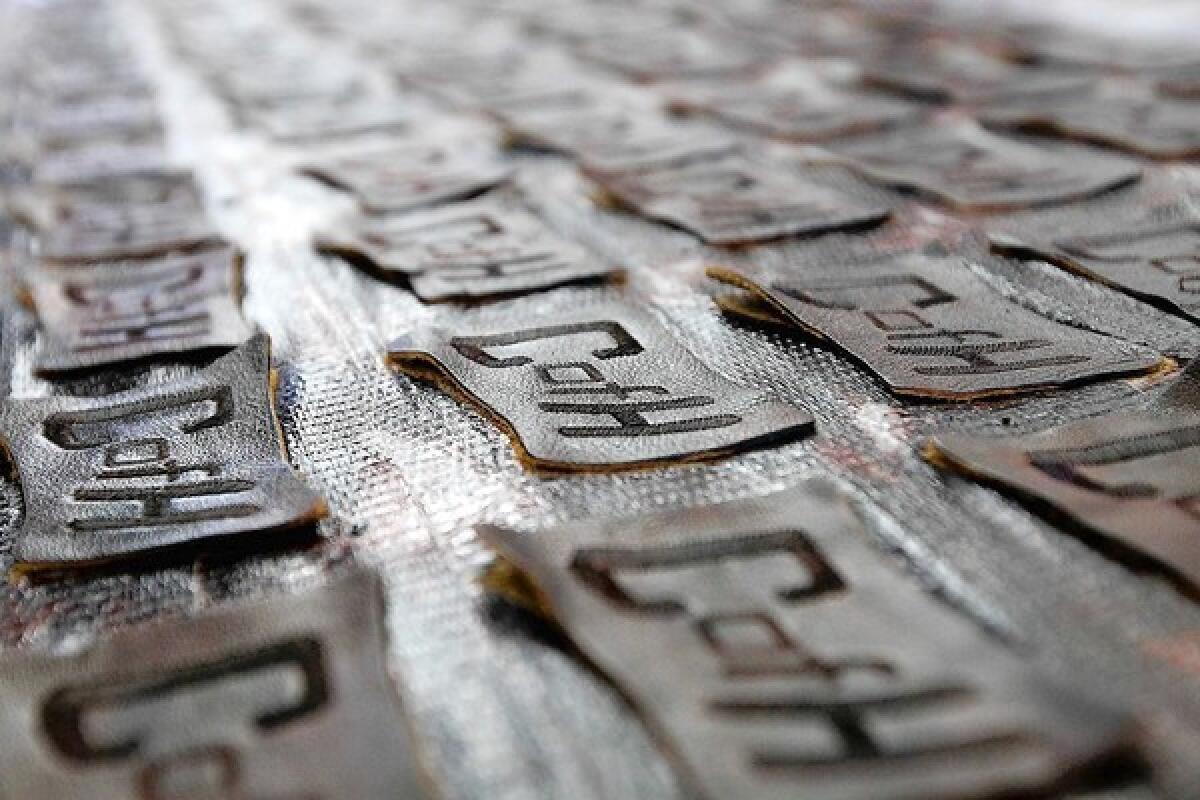Premium denim, the Los Angeles way

- Share via
Because of denim’s pedigree as an inexpensive work-wear fabric, the five-pocket jeans in the premium denim category occasionally find themselves deconstructed, rivet by rivet, in an attempt to unravel the riddle of the retail price tag. In 2005 it was: “Who pays $600 for jeans?” In 2011: “How can jeans cost $300?” While the prices and dates may change, the underlying implication does not.
The question looms even larger against the backdrop of the economic malaise of the last few years, according to Port Washington, N.Y., market research firm NPD. Overall jean sales dropped about 2% to $13.7 billion for the 12 months ending in June, sales of jeans priced $50 and up dropped 8%.
But that still means Americans snapped up some $2 billion worth of premium denim in the last year — with the vast majority of that made in the Los Angeles area.
“If I could make the exact same jeans somewhere else, with the same fabric and the same washes and everything, I could probably do it for 30% or 40% less,” says Jerome Dahan, founder and chief executive of the Huntington Park-based Citizens of Humanity label and a 29-year veteran of the blue jeans business. But Dahan’s experience has convinced him that it’s just not possible to manufacture with his exacting specifications in China, Mexico or Malaysia, where labor and sourcing costs are lower. “Maybe if I was a 25-year-old and not a 50-year-old and I could spend 20 years in China, that might be an option,” Dahan says.
He’s not alone in that assessment either. “There will be a day in any given week when something [in the production process] doesn’t connect just right,” says Michael Geller, president and CEO of Culver City-based Paige Denim. “And that’s when you can get in your car and drive over to the wash house or wherever and make it right. You can’t do that if you’re making them anywhere else.”
Geller thinks the cluster of denim laundries and the technical know-how of the blue crews based in the Southland are the reasons why the area owns the largest slice of the premium denim pie. “Los Angeles is responsible for at least 80% of the premium denim in the U.S. at a minimum,” he says. “Maybe as much as 90% to 95%.”
Geller and Dahan say the cost of manufacturing a pair of premium jeans can vary wildly, depending on the style and the details. High-quality denim, for example, can range from $12 to $25 a yard (whereas a lower-quality denim might cost closer to $7). And seemingly minor artistic decisions can have a major effect.
“People might not notice right away that instead of nine stitches per inch it’s five stitches per inch,” and thus must be done by hand, “or that we’re using thread that’s half the size of what we usually use, but those things can suddenly add $20 or $30 more to the cost,” Dahan said.
Geller says that such style details end up having a ripple effect: “The decision to add [back pocket] embroidery might cost a couple of dollars,” he said. “But once it goes through everyone in the chain — from manufacturer to retailer to consumer — the cost of a couple of dollars ends up being many dollars.”
But the costs of fabric and trim can’t hold a candle to the most expensive step in the production process: laundry treatments that may include washing in soap, abrading with stones, drying, dipping in resins. (See accompanying article on this page.)
Denim, a fabric that’s either 100% cotton or close to it, naturally shrinks when laundered, which means that each new bolt of fabric requires an extensive and repeated shrink testing process. At Citizens of Humanity that involves sampling 30% to 40% of each delivery before it’s made into jeans.
Shrinkage considerations make the seemingly simple process of adding a new silhouette or wash more costly, sometimes requiring up to five rounds of pattern-cutting, fitting and tweaking of a design, involving as many as two dozen people. And that’s solely to create a sample to show prospective buyers. Geller puts the level of investment in perspective: “To make 10 to 20 samples, all handmade, for a jean that retails for $200, might cost as much as $400 or $500 each.”
Dahan estimates that Citizens of Humanity turns out about a million pairs of jeans a year, directly employing 375 people and working with an additional 400 to 500 people employed by contractors who do things like add waistband embroidery and belt loops. Though Geller declined to share Paige Denim’s annual output, he did estimate that each pair of jeans made by the company was handled by at least 150 employees through the production process.
And, to hear Geller and Dahan tell it, thanks to the wash houses and the denim experts who call the City of Angels home, those jobs aren’t likely to leave Los Angeles any time soon. At least as long as the customers clamoring for those fabulous five pockets continue to have enough money in theirs.
More to Read
Inside the business of entertainment
The Wide Shot brings you news, analysis and insights on everything from streaming wars to production — and what it all means for the future.
You may occasionally receive promotional content from the Los Angeles Times.











